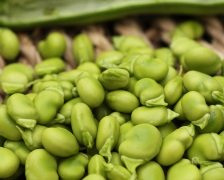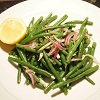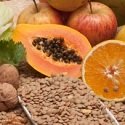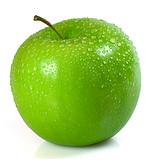Lose Weight
![]() Calories in Food
Calories in Food
![]() Calories in Vegetables
Calories in Vegetables
![]() Calories in Broad Beans
Calories in Broad Beans
Calories in Broad Beans,
Broad Beans Nutrition
How many calories in Broad beans? See below, the Broad beans calories for the different serving sizes. We provide you with the Broad Beans nutrition facts and the health benefits of Broad beans to help you to lose weight and eat a healthy diet.
Broad beans also known as Fava beans, have many uses, cooked and eaten cold in salads, in stews, or simply steamed and eaten like any other vegetable. Broad beans are quite high in carbohydrates, about one fifth of its content; however it is high in fiber. They provide a good source of folate, calcium, magnesium, phosphorus and potassium.
Given their excellent fiber content, Broad beans are great for aiding digestion and helping you to feel full quickly. They are believed to be good at lowering levels of cholesterol and therefore reducing the risk of heart disease. Other Broad beans benefits are thought to include the regulation of our blood sugar levels so potentially useful for diabetics.
Broad beans contain tyramine which may cause headaches.
Below we have three calorie tables for this vegetable when raw, cooked or canned. We also have a detailed nutrient table. See our vegetable calories comparison chart to compare the calories in broad beans with the other calories in vegetables.
Also, have a look how nutritious Broad beans are in comparison to the other vegetable nutrition facts.

Calories in Broad Beans (Fava Beans), Mature Seeds, Raw
Refuse: 0%Scientific Name: Vicia faba
| Serving Size | Calories per Serving |
| 100 grams | 341 kcal (1425 kJ) |
| 1 cup, 150 grams | 512 kcal (2138 kJ) |
| 1 tbsp, 9.4 grams | 32 kcal (134 kJ) |
Broad Beans (Fava Beans), Mature Seeds, Cooked, Boiled
Refuse: 0%| Serving Size | Calories per Serving |
| 100 grams | 110 kcal (460 kJ) |
| 1 cup, 170 grams | 187 kcal (782 kJ) |
Broad Beans (Fava Beans), Mature Seeds, Canned
Refuse: 0%| Serving Size | Calories per Serving |
| 100 grams | 71 kcal (297 kJ) |
| 1 cup, 256 grams | 182 kcal (760 kJ) |
Broad Beans Nutritional Information
| Nutritional value per 100 g (3.5 oz) | |
|---|---|
| Proximates: | |
| Water | 71.54 g |
| Energy | 460 kJ (110 kcal) |
| Carbohydrates | 19.65 g |
| Sugars | 1.82 g |
| Dietary fiber | 5.4 g |
| Fat | 0.40 g |
| Protein | 8.86 g |
| Minerals: | |
| Calcium, Ca | 36 mg (4 %) |
| Iron, Fe | 1.5 mg (8 %) |
| Magnesium, Mg | 43 mg (11 %) |
| Phosphorus, P | 125 mg (13 %) |
| Potassium, K | 268 mg (6 %) |
| Zinc, Zn | 1.01 mg (7 %) |
| Copper, Cu | 0.259 mg (13 %) |
| Manganese, Mn | 0.421 mg (21 %) |
| Selenium, Se | 2.6 mcg (4 %) |
| Vitamins: | |
| Vitamin C | 0.3 mg (0.5 %) |
| Thiamine (Vit. B1) | 0.097 mg (6.5 %) |
| Riboflavin (Vit. B2) | 0.089 mg (5 %) |
| Niacin (Vit. B3) | 0.711 mg (4 %) |
| Pantothenic acid (B5) | 0.157 mg (2 %) |
| Vitamin B6 | 0.072 mg (4 %) |
| Folate (Vit. B9) | 104 mcg (26 %) |
| Vitamin A | 15 IU (0.3 %) |
| Vitamin E | 0.02 mg (0.1 %) |
| Vitamin K | 2.9 mcg (4 %) |
| Percentages are relative to US Recommended Daily Intake (RDI) for adults. | |
Author: Lana Soko
You Might Also Like:
Like This Page?
|
Share This Page:
|
Search Our Site:

Free E-Book:
We Recommend:
Fat Loss 4 Idiots

Imagine losing in just 11 days up to 9 pounds in weight. You’ll learn how to ensure your metabolism keeps going so your body loses more fat.

 |




